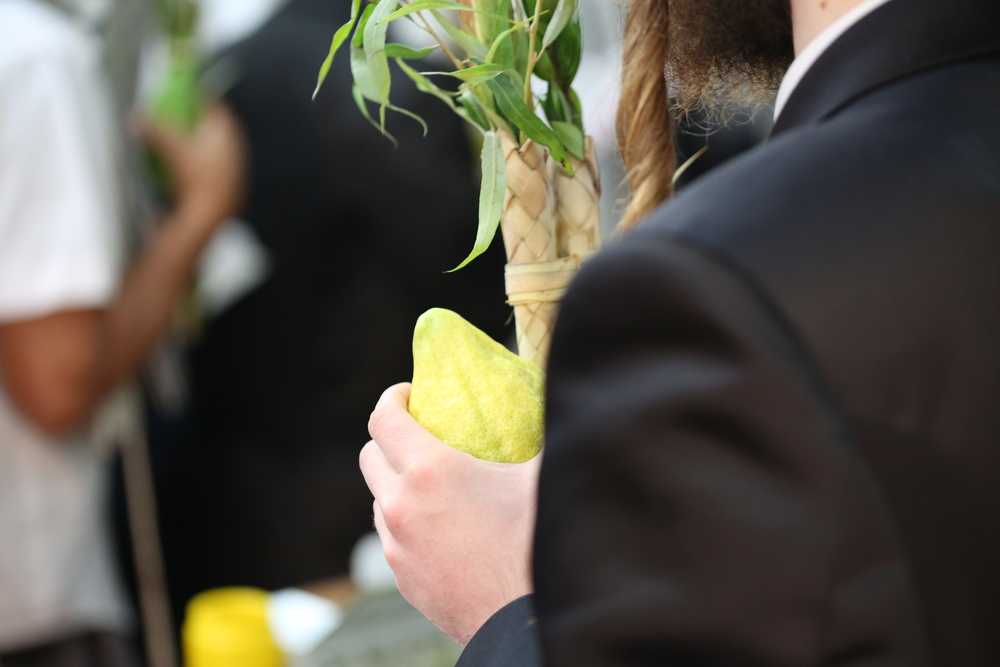
In Warsaw, Nazi bombs were falling and destroying the city, sowing death and destruction. People losing those dearest to them was part of daily existence in Warsaw. The Nazis used every method they could to break the Jewish spirit.
Sukkot came and there obviously weren’t very many 4 species in the city. The Rabbi of Brisk, Rabbi Yitzchak Ze’ev Soloveitchik told over: “I was of the few who had 4 species. So on the 1st day of the holiday hundreds of people came to my house to bless on the 4 species.”
“One man that came wore Chassidic garb and when he blessed on the 4 species he was especially happy and did the mitzvah very enthusiastically. I was riveted by this man and I had to find out about him. I was totally shaken to find out that just the day before his whole family was killed in the bombings. This made me really wonder: How is it possible that a Jew make a blessing and shake the 4 species with so much happiness only a day after he lost his whole family?”
“This is the power of Chassidut,” exclaimed the Rabbi of Brisk who was of Lithuanian origins and definitely not Chassidic.
Many people ask what new things Chassidut introduced. Indeed they didn’t add mitzvoth (no one can it’s prohibited). But they took things already brought down in the words of our sages and in the Torah and place heavy emphasis on them.
For example, the Chassidim added a lot of life and enthusiasm into Torah learning and doing the mitzvoth. The Baal Shem Tov who founded Chassidut placed great emphasis on doing mitzvoth with happiness and enthusiasm. Happiness puts Torah in a new light and livens up doing the mitzvoth. They’re the same Torah and the same mitzvoth but suddenly they illuminate and enliven the soul turning the Torah and mitzvoth into something sweet and desired.
There’s a well-known saying from Rabbi Aaron of Karlin: “Happiness isn’t a mitzvah and sadness isn’t a sin, but happiness can achieve more than the greatest mitzvah can. And sadness can ruin far more than the greatest sin can.” This tells us that happiness can help a person reach lofty spiritual levels.

This is what actually happened. The light of Chassidut allowed Jews to approach Torah differently and do the mitzvoth with warmth, happiness and freshness. Routine was replaced with a wave of inner life that filled Judaism. This effect influenced all of Judaism not just those following the path of Chassidut.
Indeed, the Torah itself warns that all punishments would come “For not serving G-d with happiness”. This is astounding; the punishments won’t come for serious transgressions rather they come for doing the mitzvoth unenthusiastically.
This essential idea is not just some specific point in serving G-d; it’s the central point of all the Torah and mitzvoth. A man with a burning need to do something who gets it done is full of appreciation for G-d and happiness that G-d merited him with it. Happiness is sign of whether someone is happy when doing mitzvoth or not. Happiness in his Torah learning and doing mitzvoth is so important because it’s a telltale sign of how much importance he ascribes to them.
The Shelah writes that the reward someone gets in heaven for doing a mitzvah is in proportion to how happy he was when doing it. The happier a person is when doing a mitzvah the more weight the mitzvah will have on the heavenly scale. 2 people can do the exact same mitzvah and one will receive great reward while the other will receive very little reward since one did the mitzvah with enthusiasm and the other just wanted to ‘check off the box’ next that mitzvah.
If this was true in every generation, in our generation it is more relevant than ever. Our generation is full of the greatest temptations from every corner and electronic device. Our generation needs a counterweight to balance against these temptations. We must educate ourselves and then our children to feel the meaning in learning Torah and keeping mitzvoth. To feel what King David describes: “The Torah is complete; it revives the soul… more desirable than precious gold… sweeter than honey…”
There’s no better time to work on this than Sukkot, the time of our happiness which has a unique mitzvah to be happy. Why is the mitzvah of happiness specifically now on Sukkot? Because this holiday is full of mitzvoth for us to do; every moment we sit in the Sukkah we merit another mitzvah. There’s no better time to teach ourselves the happiness in doing mitzvoth. To cherish every mitzvah and to realize we’re amassing treasures in the millions that can never be destroyed and will endure forever!
